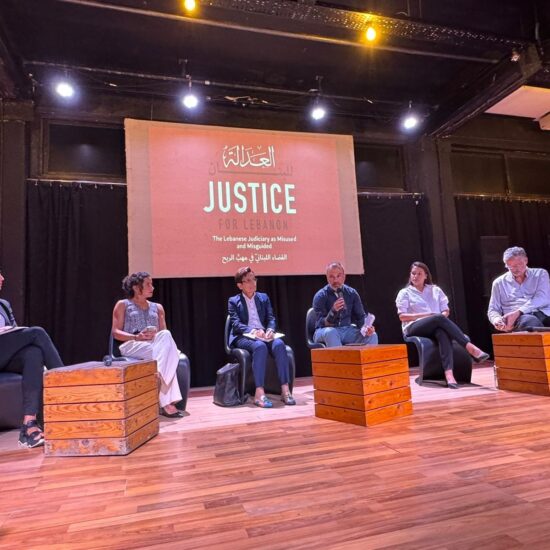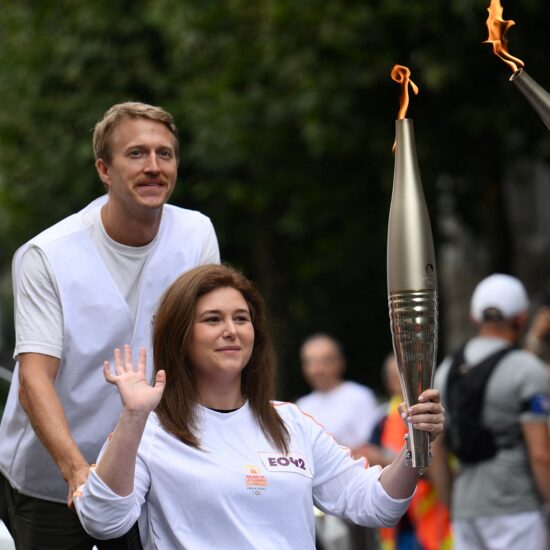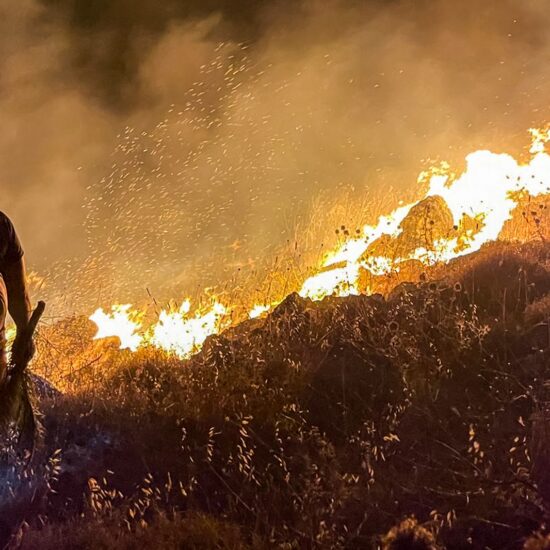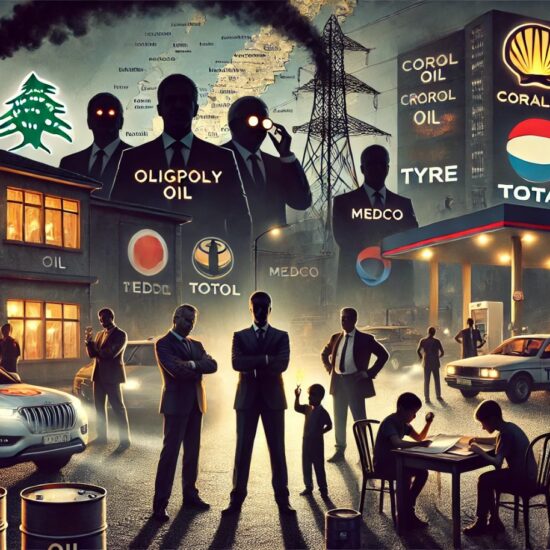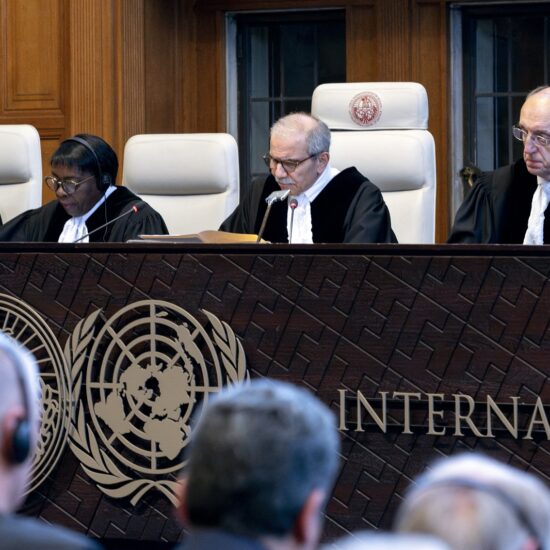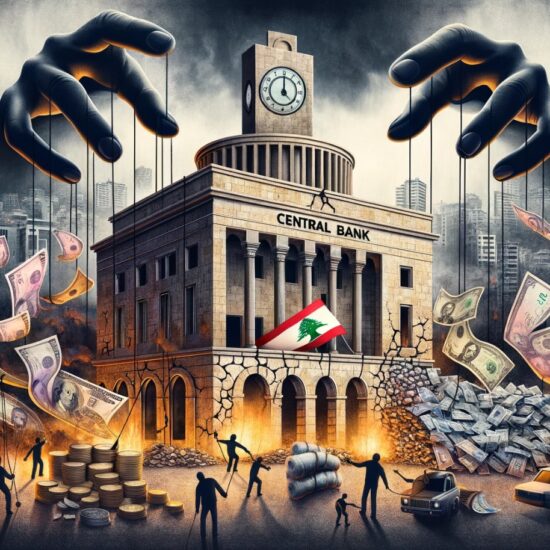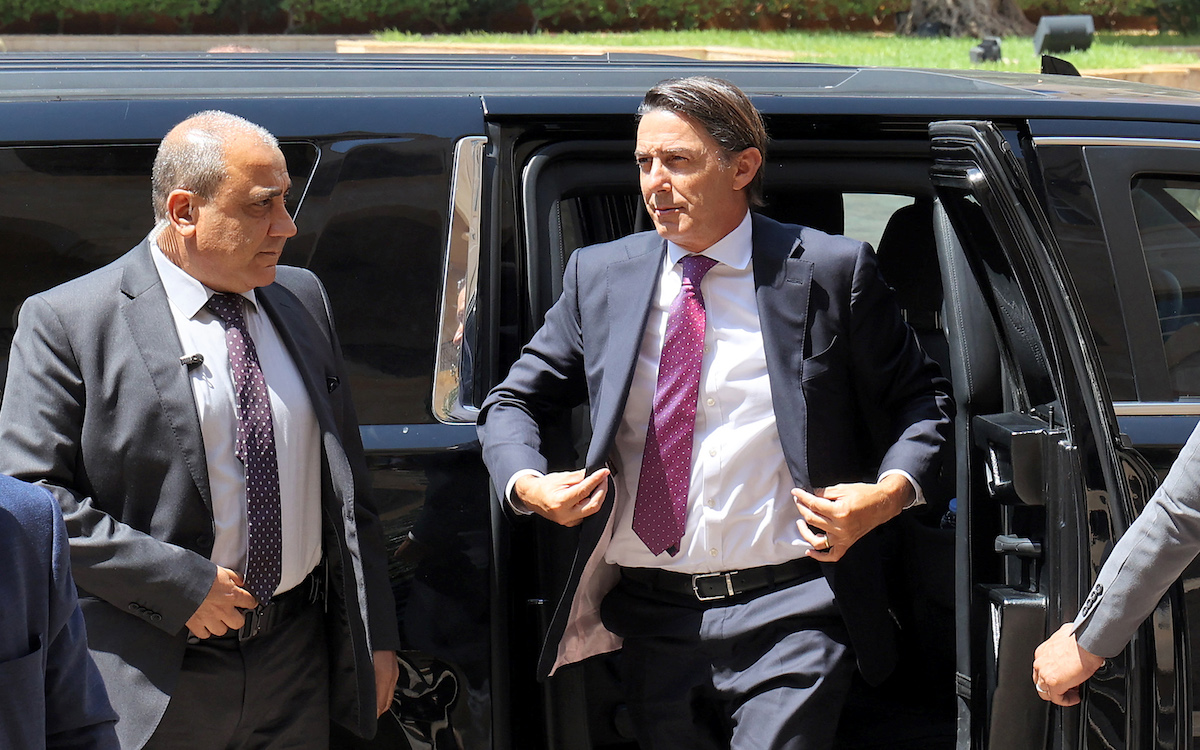
American comedian Jon Stewart once said, “If your regime isn’t strong enough to handle a joke, then you don’t have a regime.”
The statement seems particularly poignant amid the current targeting of comedian Nour Hajjar for recent and past jokes that he has told.
It all started when he was detained for a joke he told about how soldiers in the Lebanese army have to work multiple jobs due to the ongoing economic crisis, with a punchline claiming that if Israel struck Lebanon, the country would see the army heading towards the border on food delivery motorcycles – which, besides being a funny joke, carries some truth to it.
Hajjar was released, but that was not the end of the story.
Judge Ghassan Oueidat had Hajjar brought in once more upon receiving a complaint from Dar al-Fatwa, Lebanon’s Sunni religious authority, regarding a joke he made five years ago about his mother and Muslim religious practices during funerals.
Comedy is without a doubt subjective, but a comedian should not be targeted for a joke, especially for one that is several years old.
The fact that they had to go through years of Hajjar’s stand-up career so that they could find something to use to prosecute him says a lot about their intentions.
This has nothing to do with holding someone accountable for an offensive joke or disparaging a religious group. This is all about trying to scare people into silence.
As more and more journalists, comedians, writers, and others for whom freedom of expression is essential are targeted, fears are raised that while a significant amount of free expression remains in Lebanon, it is slowly being chipped away.
In Lebanon
Hochstein returns: US envoy Amos Hochstein made his first trip to Lebanon since the maritime border agreement between Lebanon and Israel last year.
#US envoy Amos Hochstein has arrived to #Beirut where he was met by caretaker PM Najib Mikati and US ambassador Dorothy Shea. Hochstein in here to try and de-escalate tensions on the #Lebanon–#Israel border – particularly between Israel and #Hezbollah. #لبنان #آموس_هوكستين
— Nicholas Frakes | نيكولاس فريكس (@nicfrakesjourno) August 30, 2023
Hochstein visited Lebanon for two days, aiming to build off his success last year by getting Lebanon and Israel to sign an agreement demarcating their land borders.
The maritime border agreement was no walk in the park, but getting the two countries, which have no diplomatic ties, to agree on their land borders could prove impossible as tensions are high along the border.
On top of that, areas like Kfar Chouba, the Shebaa Farms and northern Ghajar are extremely contentious, with Lebanon staking claim to them although Israel refuses to accept it. Reaching an agreement with the current extremely far-right government led by Benjamin Netanyahu is highly unlikely, as they would almost undoubtedly seek Hezbollah’s disarmament, which is not going to happen any time soon.
UNIFIL’s mandate renewed: The United Nations Security Council was able to reach an agreement on August 31 to renew the United Nations Interim Force in Lebanon (UNIFIL) right before the UN force’s mandate was set to expire.
The United Nations Security Council, in a last minute vote, extended @UNIFIL_’s mandate in #Lebanon for another year with #Russia and #China abstaining. #لبنان #اليونيفيل
— Nicholas Frakes | نيكولاس فريكس (@nicfrakesjourno) August 31, 2023
This, however, was not necessarily to Lebanon’s and Hezbollah’s excitement. While both want UNIFIL to remain in their role, Article 16 of the agreement gives UNIFIL the right and ability to perform patrols whenever and wherever they want without first coordinating with and receiving authorization from the Lebanese army.
That being said, the agreement does urge UNIFIL to coordinate with the Lebanese army where they can, and it is unlikely that UNIFIL will utilize Article 16 much if at all.
Strong words: On September 3, Lebanese Forces leader Samir Geagea spoke at the end of an annual mass that commemorates the “martyrs of the Lebanese resistance” in which he took a tough stance against Hezbollah, which teetered on war-mongering rhetoric, claiming that they were ready for “all-out confrontation” with Hezbollah.
Geagea specifically spoke about how he would not allow a Hezbollah-backed candidate to ascend to the presidency in Baabda and took aim at Gebran Bassil and the Free Patriotic Movement for its talks with Hezbollah.
The problem is that while this talk plays well amongst Lebanon’s Christians, which have become increasingly disillusioned with Hezbollah’s grip on power and its weapons, it rings a bit hollow when it comes to the reality in Parliament, where it is essentially impossible to elect a president without Hezbollah’s at least implicit approval.
Lebanon has been without a president for 315 days.
Budgeting: The head of Parliament’s finance committee, Ibrahim Kanaan, announced on September 4 that the 2023 budget was ready to go before the entire floor for a vote.
This is not abnormal when it comes to Lebanon, which often passes the annual budget near the end of the year that the budget is meant for.
However, the 2024 budget appears to be on the way as well, with the Ministry of Finance sending the draft law to the government for review.
The interim head of the Central Bank (BDL), Wassim Mansouri, has been pushing for a more traditional role for BDL when it comes to monetary policy and the government when it comes to fiscal policy. This included passing a 2024 budget before the end of the year.
Rebuilding: The UN agency for Palestinians (UNRWA) is seeking $15.5 million in order to rebuild infrastructure damaged in the fighting last month by rival factions in the Ain el-Hilweh camp.
In addition to rebuilding infrastructure, the money would also go towards providing schooling for children who cannot currently use the schools in the camp and provide cash assistance to those displaced by the fighting.
It is not clear if UNRWA will receive the entirety of the funding that they are seeking.
An unpopular stance: One of Lebanon’s leading broadcasters, MTV, released a video on their social media account and broadcast on their channel where they expressed support for the LGBTQ+ community in Lebanon and called for the abolition of Article 534.
Lebanese broadcaster @MTVLebanon has put out an ad in support of the #LGBTQ+ community and for the abolition of Article 534 which has been used to target the community in #Lebanon. #لبنان https://t.co/bOnp7jBZHB
— Nicholas Frakes | نيكولاس فريكس (@nicfrakesjourno) September 2, 2023
While there is a fair amount of support for the LGBTQ+ community in Lebanon, few in the political and religious establishment can be counted as allies.
There was also blowback from religious conservatives in the country after the video came out with MTV being labeled as the “gay channel” and calls to boycott or even cancel the channel. One Twitter user strangely also said that she would convert from Christianity to Islam if this was not rectified.
Iranian foreign minister visits Lebanon: Iran’s foreign minister, Hossein Amir Abdollahian made a trip to Lebanon on August 31.
During his visit, Abdollahian met with Lebanese political leaders to stress the importance of quickly electing a president – something that foreign politicians have been doing for nearly a year.
Abdollahian also rebuffed French President Emmanuel Macron for his comments about Iran’s regional interference by urging the French president to focus on his own country and that Iran refuses to interfere in Lebanon’s affairs. This comment by Abdollahian is essentially voided due to Hezbollah’s dominance in Lebanese politics. While Hezbollah does enjoy a fair amount of autonomy, in the end, the party answers to Iran and its supreme leader, Ayatollah Ali Khamenei.
The Iranian foreign minister also met with leaders from Hamas and Islamic Jihad to affirm Iran’s continued support for the groups and their cause.
In the region
Protests continue: The protests in Sweida and Daraa are now in their third week as protests continue to call for Syrian President Bashar al-Assad to leave power amid the ongoing economic turmoil in the country.
These protests show no signs of letting up anytime soon, as anger over the economic situation in the country has reached a boiling point.
The Syrian government has yet to respond to the protests, but it is unlikely that Assad will voluntarily step down.
A surprise visit: US representatives French Hill (R-Ark.), Ben Cline (R-Va) and Scott Fitzgerald (R-Wis.) paid a visit to a border post along the Syrian-Turkish border last week in the first trip to Syria by US lawmakers since 2018.
While the lawmakers had planned on visiting other villages in the area during their trip, this was quickly overruled by the State Department.
The US has had a muddled policy when it comes to Syria. The Western superpower opposes the Assad government and has some troops in the area, but, for the most part, has tried to wash its hands of the conflict.
A new conflict: The US-backed, Kurdish-led Syrian Democratic Forces have been fighting local Arab tribes who have allied with their former ally the Deir Ezzour Military Council for the past week with the SDF calling for a resolution to bring the fighting to an end.
The fighting began after the SDF arrested Ahmad al-Khbeil, more commonly known as Abu Khawla, who headed the Bakir tribe and the Deir Ezzour Military Council.
This has led to a sort of uprising against the SDF and spurred fears that the fighting could allow ISIS to make a resurgence.
The US has been meeting with officials from the SDF and the area to try and de-escalate the situation.
Eritreans protest in Israel: Over 150 people were injured during a protest by Eritrean asylum seekers on September 2 in Tel Aviv outside of an event sponsored by the Eritrean embassy.
The event was meant to celebrate Eritrea’s 30 years of independence but has been a flashpoint for violence as Eritreans who fled the government of President Isaias Afwerki, who is considered to be one of the most repressive rulers in the world, held demonstrations outside of the events.
The violence prompted Netanyahu to call for the expulsion of “illegal infiltrators” from Israel, a hypocritical statement since countless Jews first came to Israel as refugees.
Many African asylum seekers in Israel have long complained of the racism they have experienced upon arriving in the country.
Use of force: On August 21, Ameed al-Jaghoub was standing with a group of teenagers and young men in the Palestinian village of Beita while Israel’s paramilitary border police were raiding the village. While the 33-year-old ran away from the Israeli forces, he was shot in the back of the head.
Now, several weeks later, al-Jaghoub remains in a coma with doctors unsure if he will survive.
This shooting, not new to Palestinians who have experienced things amid the decades of Israeli occupation, has drawn criticisms from the US and others over Israel’s use of force.
Despite this criticism, it will do little to change things, especially as Israel is being led by an extreme right-wing government with several of its members outwardly calling for the murder of Palestinians.
What we’re reading
A new form of education: Education in Lebanon has come under the spotlight more and more as it suffers grievously due to the economic crisis. I wrote about an NGO that is looking to use theater as a means of teaching students in public schools as well as give youth in Lebanon a chance at making a career out of their passion for the stage.
Safety concerns: Following a pre-audit report of Beirut’s airport, many safety concerns have been raised, including the possibility of disaster striking the country’s only public airport. NOW looked at these safety concerns and the impact that it could have on the country.
Rising violence: Israel’s Palestinian communities have long been on the fringe of society, often being ignored by the government. The New York Times’s Isabel Kershner, Yafa al-Naseriye and Umm al-Fahem wrote about the violence plaguing Israel’s Palestinian communities, much of which is attributed to organized crime.
Lebanon+
Down but not out: On September 2, Lebanon beat Iran in its final match of the FIBA World Cup, ending their run to become the world’s basketball champions on back-to-back wins after also beating Côte d-Ivoire.
While Lebanon’s dreams and strong push in the World Cup may have come to an end, there is still hope that the team may have a shot at another global sporting event: the Olympics.
By beating Iran, Lebanon ensured that they are still in the running to qualify for the world’s largest sporting event.
While Lebanon probably will not fare much better in the Olympics, it would still be a point of national pride for the country.
Until next week, follow NOW Lebanon on Twitter, Instagram, Facebook, and LinkedIn. And stay safe!



